When it comes to campervan cooking, no matter what meals you dish up, you need a balanced meal. Grains are the perfect staple that round things out. They can help sop up sauce and keep us full with sustained energy.
As such a staple to many a balanced meal, it’s so important to learn how to cook grains the right way. If you cook them wrong, you wind up with mushy, gritty grains that throw off the whole meal.
Follow this campervan cooking advice and you’ll never have to suffer through overcooked, undercooked, or just plain awful grains again!
Campervan Cooking: Grains Edition
Look below for your favourite grain to eat with your meals and we will guide you on the best technique on how to cook it right.
Barley
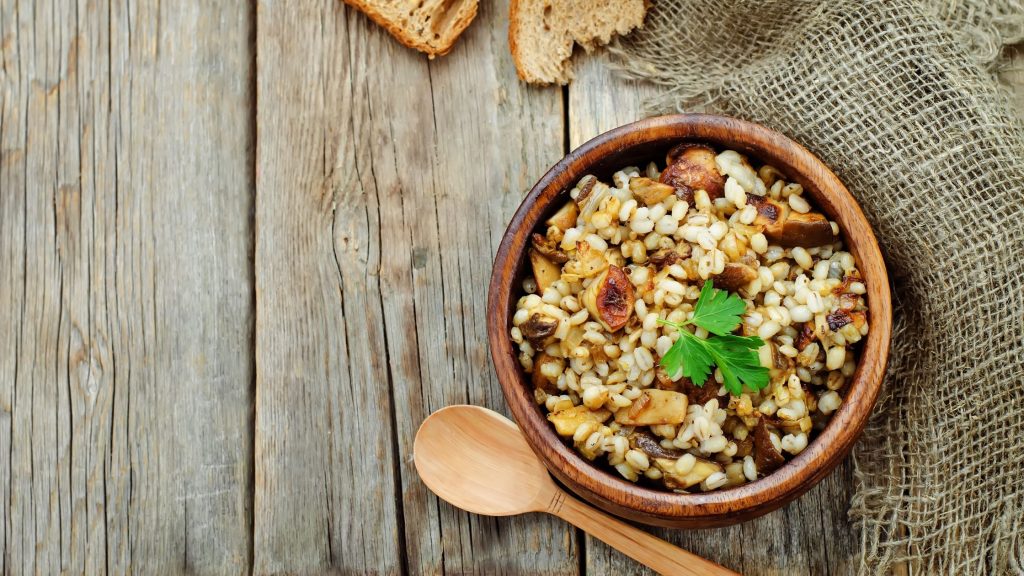
As one of the oldest grains on Earth, barley is a little sweet. It has a chewy yet tender texture. You’ve often seen it in soup, which is a great way to use barley, but you can take campervan cooking to the next level by using barley to make a nice side dish of grains for your meal.
Whilst grocery shopping it’s likely that pearled barley is what you’ll find. That’s a good thing since it’s the easiest one to cook. Ideally, you’ll want to soak it in water first to shorten the cooking time though it isn’t necessary. If you do have time to soak it, go for a few hours or let it soak overnight for tomorrow’s meal in your campervan.
Should you have whole-grain barley, you can’t skip soaking it overnight and it will take a bit longer to cook.
For all types, you will use a 1:3 ratio of barley to liquid. Bring it to a boil in water with salt (or use broth if you have it). Once it boils, turn it down to a simmer on your campervan stove and let it cook until it’s tender but has some bite to it. Generally, it will take 30 to 60 minutes.
You can also make it creamy in consistency by slowly adding hot liquid in small amounts while keeping up with the stirring.
Bulgur
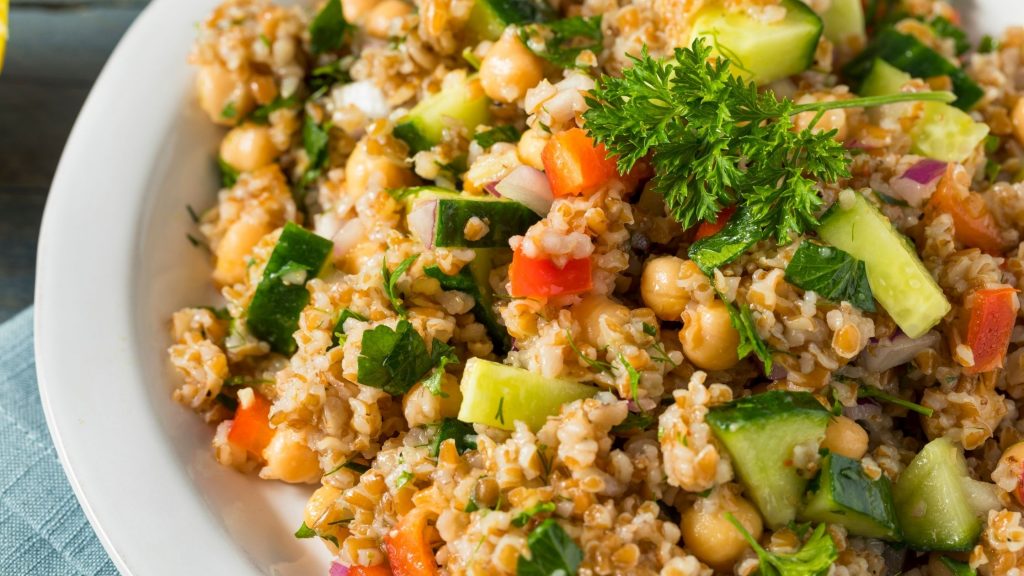
In the Middle East, bulgur is widely used. Made from whole wheat berries, it is already cooked and essentially just needs to be rehydrated. It’s ideal for quick and easy campervan cooking.
Bulgur gives you a crunchy yet tender texture and a nice wheaty flavor.
Buying bulgur may cause you to grind to a halt, for there are several types of grinds. Fine or medium will do well on salad or baked items while medium and course grinds hold up for pilaf. Whichever grind you choose, it goes bad quickly so buy a little at a time and use it up quickly.
There’s no soaking time needed with Bulgar. To cook bulgur in your campervan, all you need to do is boil salted water and pour it over a heat-safe bowl filled with bulgur. The ratio here is 1:2 for bulger to water. It will absorb this liquid and become fluffy in 15 to 60 minutes, depending on the coarseness you’ve chosen. Drain any excess liquid from it once the bulgur has a tender texture and let it rest so it dries out a bit more.
Wheat Berries
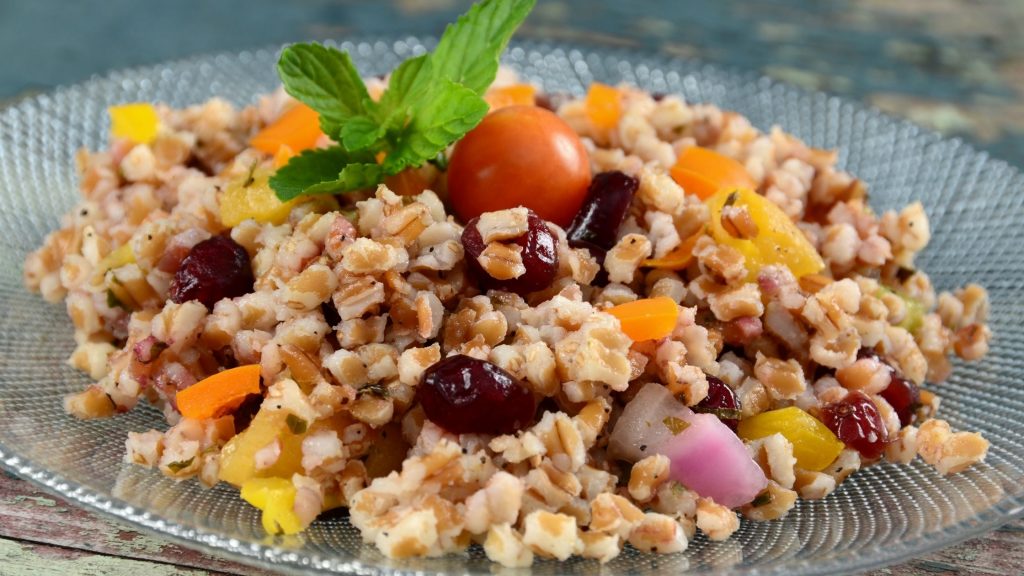
Nutty with a delightful texture, wheat berries are a tasty grain to cook in your campervan. They can be tan to reddish-brown. Some are hard while others are soft. You can use either one though the soft wheatberries will cook much faster.
You don’t have to but toasting the dry wheatberries briefly in a skillet for a few minutes will increase their flavor. Regardless, you’ll need to soak the grains whether they’ve been toasted or you get them straight out of the bag. This should be done for a few hours or even better, overnight, which will reduce your cooking time.
The ratio for wheatberries and liquid is 1:6. You’ll bring it to a boil and let it simmer to a tender yet chewy texture. Expect the cooking time to be somewhere between 25 and 50 minutes when soaked. If you don’t soak them, they’ll take anywhere from 50 to 80 minutes. One important thing about wheat berries is they split and get mushy when you cook them too long so keep checking your wheatberries after 25 minutes.
Farro
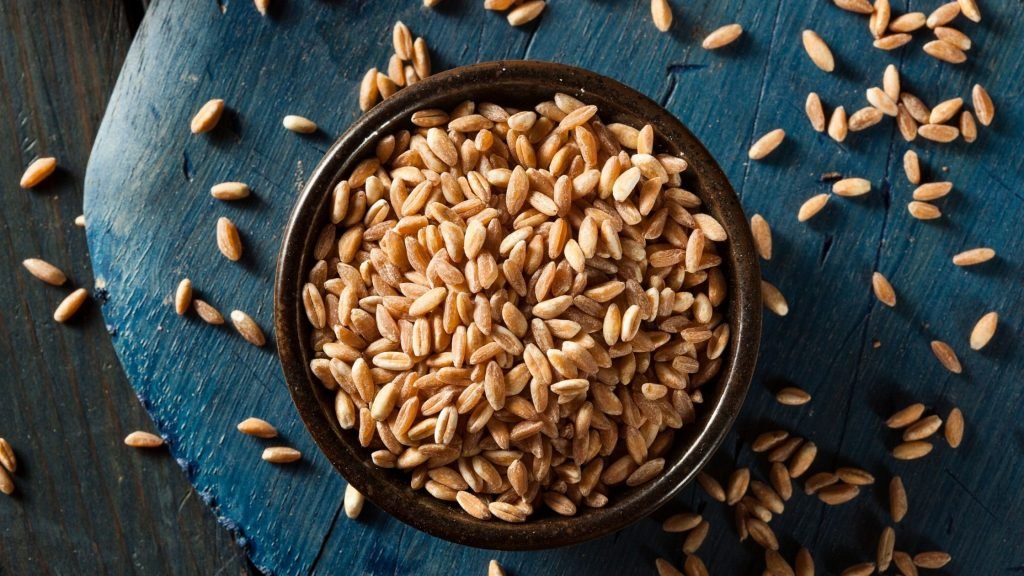
This ancient grain is nutty, firm, and chewy all at once. It’s a type of wheat though it looks more like barley. Hailing from Italy, it can turn your campervan cooking into an alfresco Italian kitchen.
Farro is one of the easiest grains to cook on a campervan stove. Simply simmer your whole-grain farro to salted water in a 1:5 ratio until it has a nice chewy bite without being hard. Drain excess water away afterward. It cooks in 15 to 30 minutes when you don’t soak it, making it one of the shortest cooking times for grains on the go.
Rice
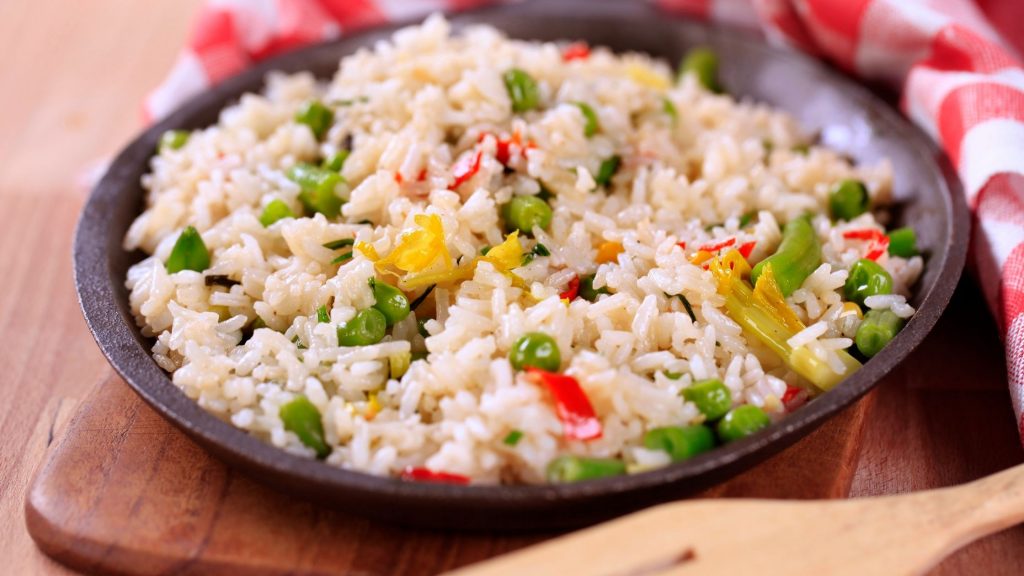
Nearly one half of the population of the world depends on rice as a staple. This grass seed is another easy grain for campervan cooking. You will want to choose rice that looks bright without being too yellowish. Texture matters too as the rice shouldn’t break when it’s not cooked. If it breaks easily, it’s not fresh.
White rice cooks best with a ratio of 1:2 with rice and water. Make sure if you double it that you’re using a large enough pot with a tight-fitting lid.
Bring water to a boil on your campervan stove, seasoning it with salt first and then add the water. Let the rice get back to a boil first, then reduce heat and cover the pot. You want to keep it at a nice simmer.
If you make a cup of rice, it will take about 17 minutes. When it’s cooked, let it sit and absorb the liquid, then fluff it with a fork.
Couscous
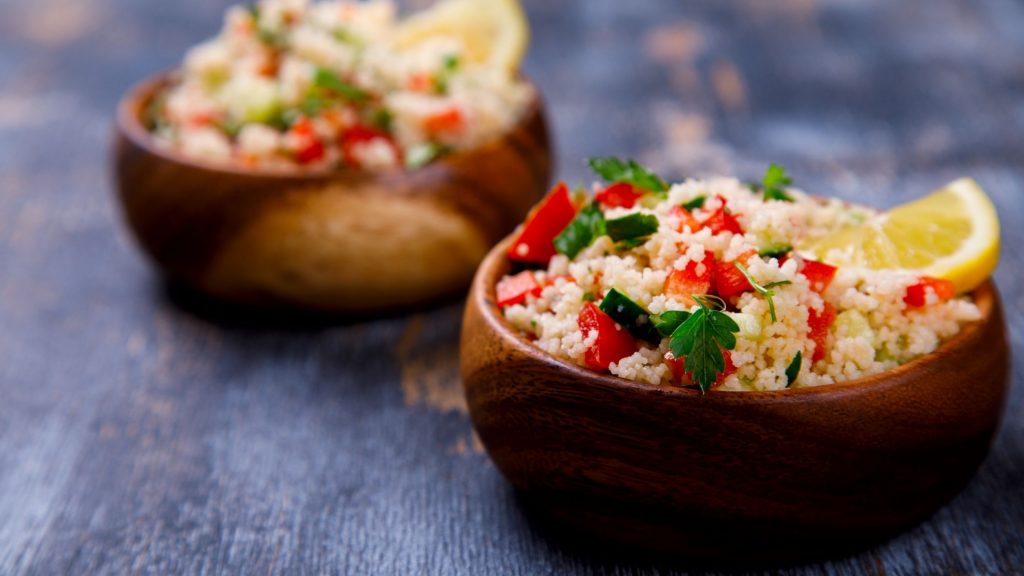
Another campervan staple food that you probably have in your van cupboard already. It goes with just about everything and is the easiest thing to cook in your campervan.
Is couscous a grain? Couscous is often referred to as a type of pasta as it is made from semolina but it’s actually made from crushed durum wheat semolina which is a slightly different type of semolina that is used to make pasta. Technically it’s not really a grain but it is often treated and cooked the same way.
The three different types of couscous are Moroccan, Israeli and Lebanese. The smallest being Moroccan and the largest being Lebanese.
The best way to cook couscous is to bring a pan of water (or broth) to the boil, stir in the couscous, season with salt and then turn off the heat, cover the pan and leave for about 5 minutes until the couscous is soft and fluffs up with a fork.
The amount of water required to cook couscous is 1 part couscous to 1.5 part water or broth. (1:1.5).
Final Tips on How to Cook Grains in Your Campervan
Remember, the fresher the grains, the better. Buy only what you need and stow it in airtight containers out of direct sunlight. This will make them last on your journeys near and far and provide plenty of nourishing grains for every meal.
Having couscous onboard will give you a quick easy carbohydrate to serve with just about anything. Add herbs and spices to transform your dish in to a variety of cusines all around the globe.

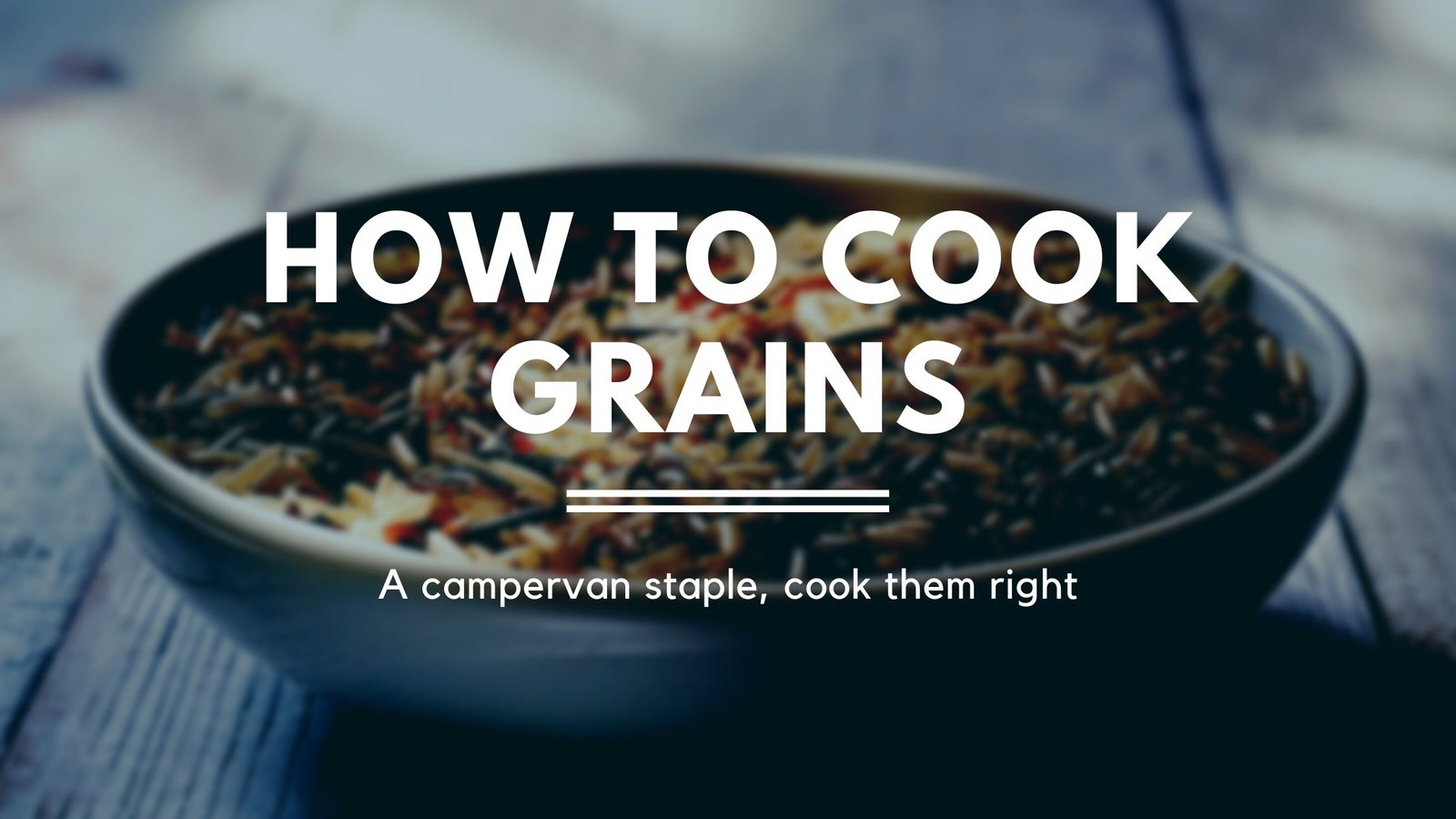

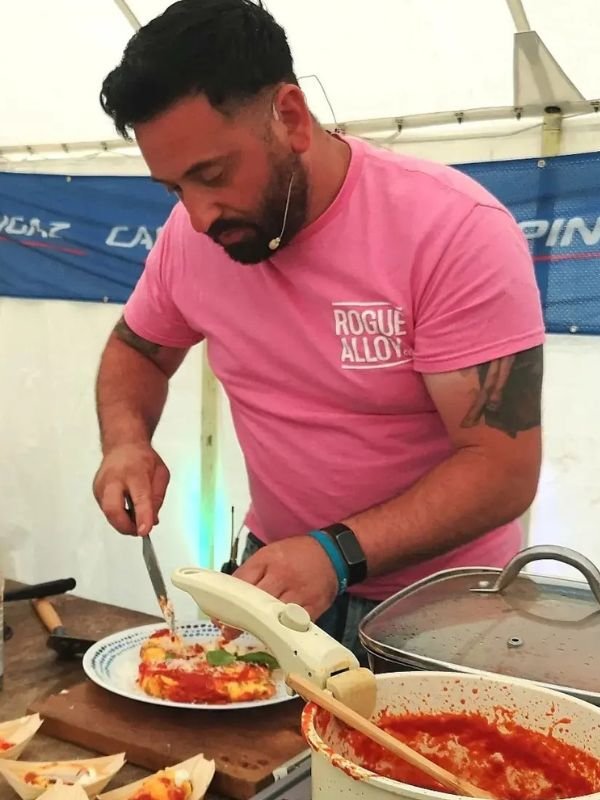
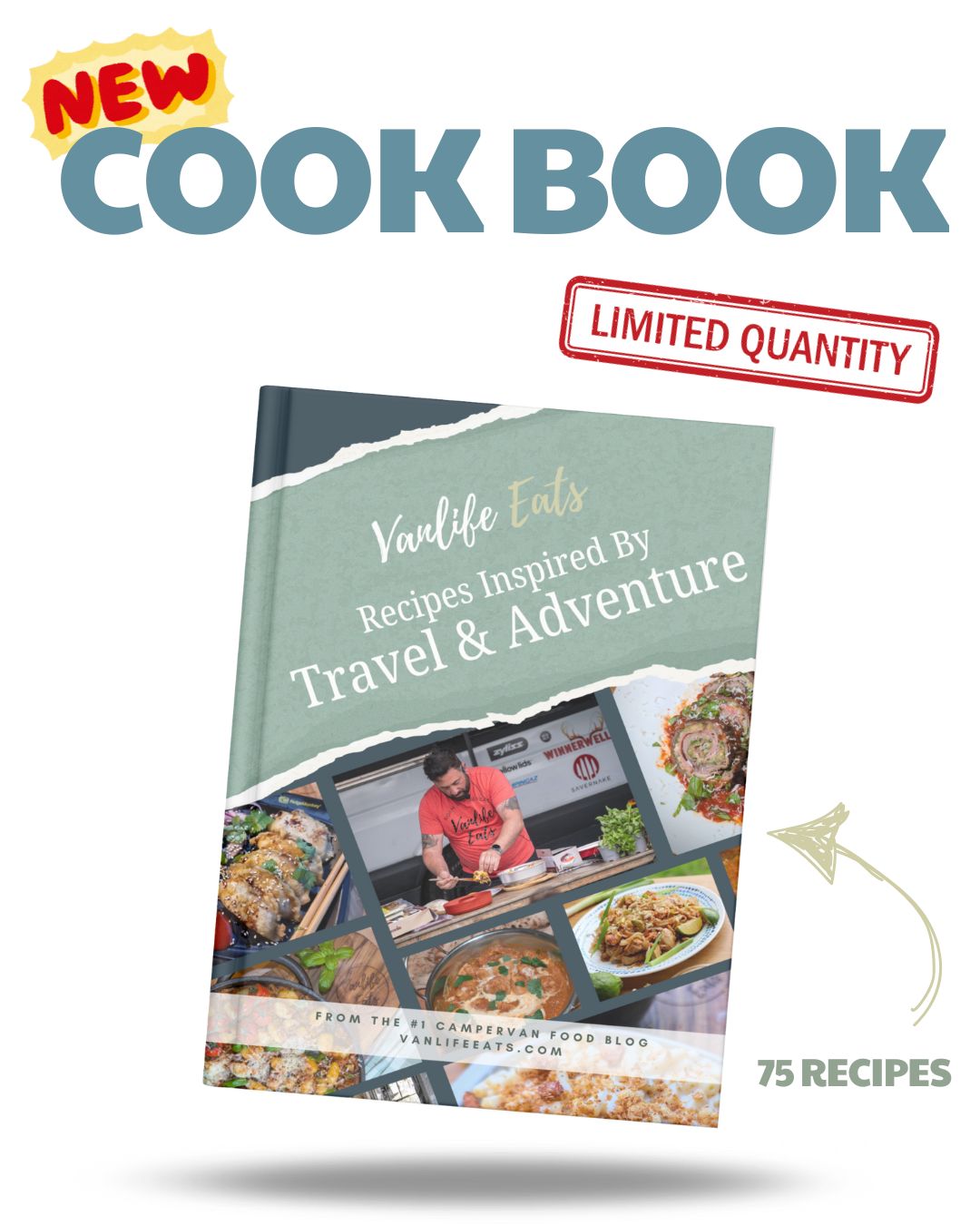

0 Comments